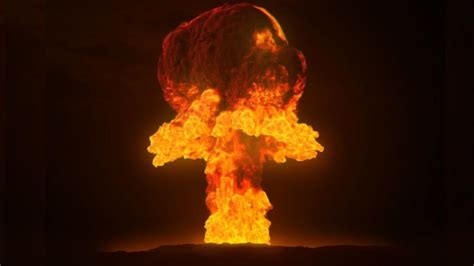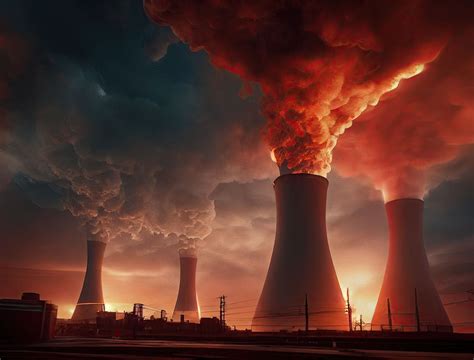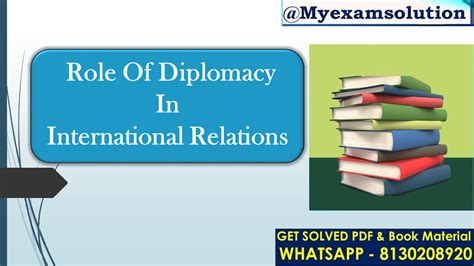In the pursuit of a shared vision of a planet devoid of the destructive power of nuclear arms, humanity is driven by a collective desire to safeguard our global community from the inherent threats posed by these weapons. This paramount objective permeates the hearts and minds of individuals and nations across the globe, uniting them in a common goal of forging a future where the specter of nuclear devastation no longer looms overhead.
The yearning for a world free from the devastating repercussions of nuclear warfare has transcended geopolitical factions and ideological differences, resonating deeply within the souls of citizens around the world. The relentless pursuit of this dream is fueled by the recognition of the unimaginable horrors that nuclear weapons can unleash, tearing apart societies and altering the course of history in an instant. In the face of such peril, the global community aspires to enact comprehensive measures that will ensure the safety and well-being of generations to come.
Essential to the prospect of realizing this vision is the establishment of an environment where security and harmony take precedence over the pursuit of nuclear capabilities. This ambitious endeavor necessitates the collective commitments of nations to denuclearization, underpinned by sound diplomacy, accountability, and a shared sense of responsibility. By replacing the language of hostility with discourse centered on disarmament and cooperation, nations can lay the groundwork for a nuclear-free world, where the energy and resources once dedicated to the manufacturing and maintenance of these weapons are redirected toward endeavors that promote human welfare and sustainable development.
The Urgency of Achieving a World without Nuclear Weapons

In the pursuit of a harmonious and secure future, the global community has recognized the pressing need to eliminate the most destructive and hazardous weapons ever created. Implementing measures to establish a world without the existence of nuclear weapons has become an imperative that requires immediate attention and concerted efforts from all nations.
This imperative stems from the profound understanding that the catastrophic consequences resulting from the use of nuclear weapons have the potential to irreversibly alter the course of humanity. The urgency to eliminate these weapons is accentuated by the realization that their development, possession, and deployment pose an existential threat not only to nation-states but also to the entire planet.
Creating a nuclear-free world requires a collective commitment to disarmament and non-proliferation. It necessitates an unwavering dedication to diplomatic negotiations, arms control agreements, and robust international cooperation. By pursuing disarmament with utmost determination, the global community can pave the path towards peace and stability, diminishing the risk of catastrophic nuclear accidents, miscalculations, and the ultimate tragedy of nuclear warfare.
The quest for a world free from nuclear weapons demands a paradigm shift in the mindset of nations, emphasizing the inherent obsolescence and futility of relying on these deadly arsenals as instruments of security. The urgency lies in recognizing that true security lies in disarmament, trust-building, and the cultivation of peaceful relations among nations.
Eliminating nuclear weapons is not purely an idealistic aspiration – it is a pragmatic and urgent necessity. The time to act is now, for the future of humanity and the preservation of our planet depend on our ability to overcome the challenges and barriers that hinder the achievement of a nuclear-free world.
Understanding the Threat: The Perils of Nuclear Weapons
In today's world, it is imperative that we comprehend the inherent dangers associated with the possession and deployment of nuclear weapons. These immensely destructive arsenals pose significant risks, not only to the security of nations but also to the very existence of humanity itself. To fully grasp the magnitude of this threat, we must delve into the potential catastrophic consequences and the far-reaching implications that nuclear weapons bring.
When contemplating the perils of nuclear weapons, it becomes evident that their immense destructive power surpasses anything humanity has ever witnessed. The sheer capability to annihilate entire cities in an instant is a chilling reminder of the devastating impact these weapons can have on both human lives and the environment. Furthermore, the possession of such weapons encourages a precarious arms race, heightening tensions between nations and provoking a constant state of insecurity.
Moreover, the abundant presence of nuclear weapons increases the likelihood of their falling into the wrong hands. The potential for terrorists or rogue groups to acquire and utilize these weapons is a terrifying prospect that could exponentially amplify the scale of destruction and loss of life. Additionally, the accidental detonation of nuclear weapons due to technological malfunction or human error poses a substantial risk, as it could result in an uncontrollable chain of events that could spiral into global catastrophe.
Furthermore, the possession of nuclear weapons perpetuates an atmosphere of fear and anxiety among nations, as the tremendous destructive potential they entail creates a constant specter of mutual destruction. This paradigm breeds a culture of mistrust and hostility, hindering opportunities for diplomatic dialogue and peaceful resolution. The staggering financial costs associated with maintaining and updating nuclear stockpiles divert valuable resources that could otherwise be utilized to address pressing global issues, such as poverty, healthcare, and climate change.
Understanding the gravity of the threat posed by nuclear weapons is crucial for fostering meaningful discussions and concerted international efforts aimed at disarmament. By comprehending the perils associated with these weapons, we can strive towards a shared vision of a safer and more peaceful existence, where the specter of nuclear devastation no longer looms over our collective future.
Learning from History: Insights from Past Nuclear Disasters

Exploring the lessons that can be derived from past nuclear catastrophes is crucial in our quest for a world free from the perils of nuclear power mishaps. By delving into the historical context and studying the repercussions of these incidents, we can acquire valuable knowledge to prevent future disasters and ensure a secure and harmonious tomorrow.
| Disaster | Year | Location | Key Lessons |
|---|---|---|---|
| Chernobyl Disaster | 1986 | Chernobyl, Ukraine | Understanding the importance of reliable safety protocols, prompt response mechanisms, and crisis management strategies. |
| Fukushima Disaster | 2011 | Fukushima, Japan | Recognizing the potential hazards associated with natural disasters and the significance of effective risk assessment and mitigation measures. |
| Three Mile Island Accident | 1979 | Dauphin County, Pennsylvania, USA | Raising awareness about the criticality of communication transparency, precise operator training, and accurate public information dissemination. |
Each of these devastating events reveals distinct aspects of nuclear technology that demand our attention. By embracing this knowledge, we can forge a path towards a future where the dangers posed by nuclear energy are minimized, and our aspirations for a safe and harmonious society become a reality.
Bridging the Gap: Fostering Trust and Collaboration
In order to achieve our shared vision of a world free from the risks and challenges associated with nuclear weapons, it is essential to establish and nurture trust and collaboration among nations. This section focuses on the critical task of building strong and meaningful relationships between countries, transcending barriers, and fostering a collective commitment to disarmament and peace.
Building Trust:
Trust is the foundation upon which successful collaborations are built. It involves the belief in the reliability, sincerity, and integrity of others. Overcoming historic tensions and cultivating trust amongst nations is a vital step towards creating a secure and harmonious world. Trust can be fostered through transparent communication, honest dialogue, and the demonstration of shared values and commitments. It requires a willingness to listen, empathize, and understand each other's concerns and perspectives, fostering a sense of mutual respect and cooperation.
In order for collaborative efforts to be successful, it is imperative that nations actively work towards building trust, leaving behind any preconceived notions or biases that hinder progress. By setting aside differences and focusing on common goals, countries can forge strong relationships based on trust and mutual understanding.
Encouraging Collaboration:
Collaboration is the cornerstone of any effort aimed at nuclear disarmament. It involves working together, pooling resources and knowledge, and sharing responsibilities to achieve a common objective. Building effective collaborations requires open lines of communication, a willingness to compromise, and the recognition of the benefits that joint efforts can yield. It involves breaking down barriers and embracing diversity, acknowledging that each nation brings unique perspectives and contributions to the table.
Nurturing collaboration requires recognizing that the challenges associated with nuclear disarmament transcend borders and require unified action. Through fostering cooperative frameworks, establishing multilateral agreements, and initiating joint initiatives, countries can overcome individual limitations and work collectively towards a nuclear-free world.
Conclusion:
By bridging the gap between nations through trust-building and collaboration, we can pave the way for a future free from the dangers associated with nuclear weapons. Every step, no matter how small, contributes to the greater goal of global security and peace. It is through collective efforts and a shared commitment that we can make the dream of a safer world a reality.
International Efforts: The Role of Diplomacy and Disarmament

In the pursuit of a world free from nuclear weapons, international efforts play a crucial role. Diplomacy and disarmament initiatives contribute towards creating a secure and peaceful global environment for present and future generations. These endeavors focus on fostering dialogue, building trust, and establishing frameworks that promote the dismantling and non-proliferation of nuclear weapons.
- Disarmament Agreements: Various international treaties and agreements have been established to address the issue of nuclear disarmament. These agreements aim to reduce nuclear arsenals, prevent the spread of nuclear weapons, and promote confidence-building measures among nations.
- Nuclear-Weapon-Free Zones: Nuclear-weapon-free zones are regions where countries have committed to not develop, acquire, or possess nuclear weapons. These zones serve as important steps towards global disarmament, contributing to regional security and stability.
- Non-Proliferation Efforts: Non-proliferation efforts focus on preventing the proliferation of nuclear weapons to additional countries. International organizations such as the International Atomic Energy Agency (IAEA) monitor and verify compliance with non-proliferation agreements, ensuring the peaceful use of nuclear technology.
- Arms Control Treaties: Arms control treaties aim to limit the development, production, and deployment of nuclear weapons. These agreements promote transparency, enhance stability, and reduce the risk of accidental or intentional use of nuclear weapons.
- Conflict Resolution: Diplomacy plays a crucial role in resolving conflicts and reducing tensions between nations. Dialogue, negotiation, and mediation are essential tools in addressing disagreements and promoting peaceful resolutions, ultimately contributing to a nuclear-free world.
- Global Security Architecture: The development of a comprehensive global security architecture that addresses the concerns of all nations is vital to achieving a nuclear-free world. This architecture should prioritize collective security, confidence-building measures, and the pursuit of peaceful dispute resolution mechanisms.
By recognizing the importance of diplomacy and disarmament in the pursuit of a secure and peaceful future, nations can work together to forge stronger international partnerships and develop effective strategies to eliminate the threat posed by nuclear weapons. The collective efforts in these areas contribute towards building a safer and more harmonious world for generations to come.
Strengthening Non-Proliferation: Preventing Nuclear Weapons from Spreading
In this section, we will explore the essential measures and strategies aimed at curbing the dissemination of nuclear weapons. By addressing the challenges associated with non-proliferation, we can aim to mitigate the risks and promote global security.
1. Promoting International Cooperation
- Fostering collaboration among nations to ensure effective non-proliferation policies and treaties are upheld.
- Encouraging dialogue and negotiation to establish shared norms and principles.
- Strengthening diplomatic efforts to resolve conflicts and prevent the emergence of new nuclear weapon states.
2. Strengthening Treaty Commitments
- Enhancing the enforcement and compliance mechanisms of existing treaties such as the Treaty on the Non-Proliferation of Nuclear Weapons (NPT).
- Promoting universal adherence to relevant treaties and agreements.
- Developing robust verification mechanisms to ensure transparency and detect potential violations.
3. Facilitating Disarmament Initiatives
- Encouraging nuclear-weapon states to fulfill their disarmament obligations under Article VI of the NPT.
- Advocating for the negotiation of new disarmament treaties and agreements.
- Supporting the development of confidence-building measures to facilitate the dismantlement of nuclear arsenals.
4. Strengthening Nuclear Safeguards
- Enhancing the capabilities of international organizations, such as the International Atomic Energy Agency (IAEA), to verify compliance and detect illicit nuclear activities.
- Promoting the adoption of advanced technologies for nuclear material detection and tracking.
- Improving nuclear security measures to prevent unauthorized access and potential theft of nuclear materials.
5. Engaging Civil Society and Public Awareness
- Encouraging active participation from civil society organizations to promote awareness and mobilize public support for non-proliferation efforts.
- Increasing education and outreach initiatives to inform the general public about the dangers of nuclear weapons and the importance of non-proliferation.
- Fostering a culture of disarmament and peace through advocacy campaigns and grassroots movements.
By implementing these measures and strengthening global non-proliferation efforts, we can work towards a safer and more secure world, ultimately preventing the spread of nuclear weapons and fostering international peace and stability.
Empowering Civil Society: Grassroots Movements for Nuclear Disarmament

In this section, we explore the crucial role played by civil society in the pursuit of a future free from the devastating impacts of nuclear weapons. Rather than relying solely on governments and international organizations, grassroots movements have emerged as a powerful force for nuclear disarmament, fostering a collective desire for peace and security.
- Grassroots movements offer a platform for individuals from diverse backgrounds to come together and amplify their voices, advocating for nuclear disarmament through peaceful means.
- These movements promote dialogue and education, empowering individuals with knowledge about the dangers of nuclear weapons and the urgent need for their elimination.
- By organizing protests, demonstrations, and awareness campaigns, grassroots activists raise public awareness and engage communities in discussions surrounding nuclear disarmament.
- Grassroots organizations also play a vital role in lobbying governments and advocating for policy changes that support nuclear disarmament, pushing for the ratification of international agreements and the strengthening of existing arms control frameworks.
- Furthermore, grassroots initiatives focus on building alliances and fostering collaboration among different civil society groups, creating a united front in the fight against nuclear weapons.
- These movements also strive to involve youth and marginalized communities, recognizing the importance of diverse perspectives in shaping a future free from the threat of nuclear weapons.
By empowering civil society, grassroots movements provide a platform for individuals to actively contribute to the vision of a world without nuclear weapons. Their efforts promote peace, dialogue, and cooperation, bringing us closer to a safer and more secure future.
FAQ
What are the main reasons for dreaming of a nuclear-free world?
The main reasons for dreaming of a nuclear-free world are the potential catastrophic consequences of a nuclear war, such as mass destruction, loss of life, and long-lasting environmental damage. Additionally, the proliferation of nuclear weapons increases the risk of their use by accident or by non-state actors. A nuclear-free world would provide a safer and more peaceful future for everyone.
What steps can be taken to achieve a nuclear-free world?
Several steps can be taken to achieve a nuclear-free world. Firstly, countries can sign and ratify international agreements, such as the Treaty on the Non-Proliferation of Nuclear Weapons, which aims to prevent the spread of nuclear weapons and promote disarmament. Secondly, nuclear-armed countries can engage in bilateral and multilateral negotiations to reduce and eventually eliminate their nuclear arsenals. Lastly, there should be increased investments in diplomacy, dialogue, and confidence-building measures to foster trust and cooperation among nations.
Is it realistic to expect a nuclear-free world in the near future?
While achieving a nuclear-free world might seem challenging and unrealistic in the near future, it is a goal that should be pursued relentlessly. It requires the collective effort of nations, strong diplomatic initiatives, and a commitment to disarmament. Even if complete disarmament is not achieved in the immediate future, progress can still be made through arms control agreements and steps towards reducing nuclear stockpiles.
What are the potential obstacles to achieving a nuclear-free world?
There are several potential obstacles to achieving a nuclear-free world. Firstly, the possession of nuclear weapons provides a sense of security for some countries, which makes them reluctant to give up their arsenals. Additionally, there are concerns about the verification and enforcement mechanisms to ensure compliance with disarmament agreements. The geopolitical rivalries and tensions among nations also complicate the disarmament process. Overcoming these challenges requires political will, cooperation, and a comprehensive approach to addressing security concerns.
Can a nuclear-free world ensure global peace and security?
While a nuclear-free world cannot guarantee absolute global peace and security, it can significantly contribute to reducing the risks of conflicts escalating into nuclear wars. The complete elimination of nuclear weapons would eliminate the possibility of their deliberate or accidental use. Without the threat of nuclear destruction, nations can focus more on cooperative efforts, conflict resolution, and disarmament measures, leading to a more stable and peaceful international environment.
What is the main focus of the article "Dream of a Nuclear-Free World: Building a Safe and Peaceful Future"?
The main focus of the article is on the vision of a world without nuclear weapons and the steps needed to achieve global disarmament.
Why is building a nuclear-free world important?
Building a nuclear-free world is important because nuclear weapons pose a significant threat to humanity and the planet. Their use can lead to catastrophic consequences, and their mere existence escalates tensions and increases the risk of nuclear warfare.



